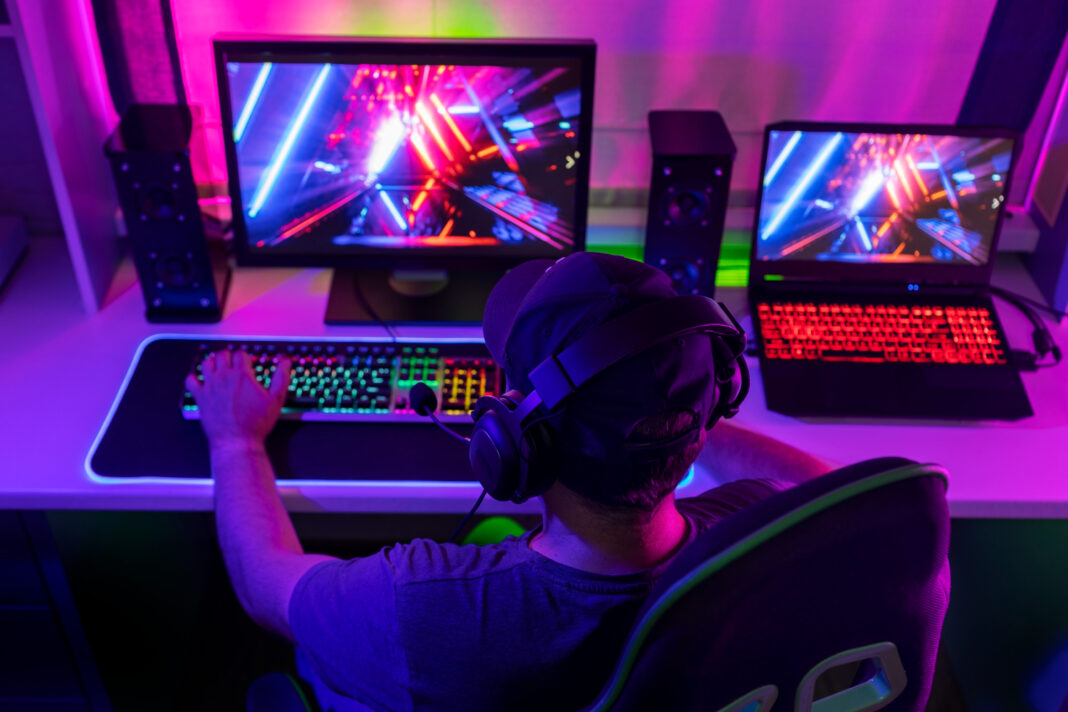NFT gaming companies have taken the gaming industry by storm, utilizing blockchain technology to create unique in-game items and experiences that can be owned and traded as non-fungible tokens. In the first quarter of 2021, the top NFT gaming companies generated over $300 million in revenue, highlighting the incredible potential for monetization in this rapidly-growing sector. As the gaming industry continues to evolve, NFT gaming companies are creating new opportunities for players to own and trade rare and unique in-game items, driving engagement and revenue.
One of the most exciting aspects of NFT gaming companies is their ability to provide players with an entirely new level of ownership and control over their in-game items. By using blockchain technology, these companies can offer players the ability to truly own their digital assets and even trade them on open markets. This has created a new level of excitement and engagement for players, as they have the ability to earn real-world value for their in-game items.
According to a report by MarketsandMarkets, the NFT gaming market is projected to grow at a compound annual growth rate of over 30% between 2021 and 2026, representing a significant opportunity for NFT gaming companies to expand and innovate. This growth is being driven by a number of factors, including the rise of blockchain technology and the increasing demand for unique and personalized gaming experiences.
NFT gaming companies are also having an impact beyond just the gaming industry. As players trade and sell their digital assets on open markets, these transactions are creating new revenue streams and economic opportunities for a wide range of individuals and businesses. For example, NFT marketplaces like OpenSea and Nifty Gateway are generating millions of dollars in revenue, while artists and creators are using NFTs to monetize their digital content in new and innovative ways.
NFTs have made their way into gaming, causing many gamers to do a serious double take. In this blog, we’ll examine five significant reasons why gamers have reservations about the integration of NFTs in games. Whether you’re a gamer trying to navigate this new change or a blockchain enthusiast curious about the scope of NFTs, you’re sure to take away some key insights from this article.
The gaming sector has grown exponentially in the last decade. From single-player video games on PCs to interactive gaming on the internet, the gaming community has seen many technological advancements in games over the years.
Innovation in games doesn’t come as much of a surprise to gamers, but the recent advent of gaming NFTs has certainly turned heads everywhere. Those interested in blockchain technology are eager to see how NFTs would work in a gaming ecosystem, but members of the gaming community seem to be wary about having NFTs enter the gaming ecosystem.
Here are 5 reasons why NFTs in games aren’t being welcomed with open arms by gamers:
They’re just too similar to microtransactions
Microtransactions in games refer to seemingly small (yet crucial) payments that gamers have if they want to advance further in the game. These purchase requirements are strategically placed at critical stages of the gamers’ journey in the competition. For instance, after the gamer has already spent a considerable amount of time passionately working on their in-game skills and moves, they reach a point where they either pay to reach the next level or bow out. Who would want to lose their progress and concede to their competitors after spending so many hours working at their game? So, of course, gamers reach into their pockets and spend real money just to level up.
Many truly passionate gamers have identified these microtransactions as a sly trick introduced by big game developers to fleece the gaming community.
It is impossible to ignore the similarities between NFTs and microtransactions in games. Both cost real money and play a vital role in a competitive gaming journey. That said, both add no real value to the skills and experience that a genuine gamer seeks.
Suggested Read: Cross-Platform Gaming
They encourage spending–even more than loot boxes!
Loot boxes have been the topic of much discussion in the gaming community. A loot box is essentially a virtual goody bag with virtual items and upgrades. In order to unlock a loot box, players need to either complete achievements or redeem in-game tokens. These tokens can either be collected over time through gameplay or bought with money.
A significant segment of the gaming community has already objected to in-game loot boxes as they encourage meaningless spending rather than real gaming.
NFTs in games are evidently quite similar to such loot boxes as they are purchased rather than earned with skill. However, gamers feel that NFTs may be even more dangerous as the contents of loot boxes do not have resale value, but NFTs can increase in value and be traded or sold in the future. This profit potential from NFTs encourages gamers to spend more money than they did on loot boxes.
They promote the idea that money can buy more success than skill
NFTs in games may be weapons, gear, or accessories for a gamer’s character. These add-ons allow gamers to play with a better competitive edge than those who do not own such artillery or tools.
Those looking to play skillfully and excel through their gaming abilities are now up against players who may have rudimentary gaming skills but have enough money to buy what it takes to get them ahead. Those who own NFTs will always have an unfair advantage over those who don’t.
If the inequity of such a contest strikes you as familiar, that’s because it is! This is exactly the kind of rat race we are forced to deal with in the real world.
Gamers typically enter the gaming world to escape the real world. They find fulfilment and a sense of achievement in the experience of using their skills to succeed against other gamers.
The introduction of NFTs in games has raked up the playing field to such an extent that authentic gamers do not wish to participate at all.
Why bring skill to the table when money will buy success anyway?
They breed a gambling-style approach to gaming based on mere hope
The gaming community has earned itself quite the reputation for addiction. Gamers spend hours on end playing either against computerized opponents or other players in various parts of the world. Day-long gaming runs and weekend marathons may be seen as an addiction for those looking in from the outside, but gamers are well aware of why they indulge in virtual gaming. Some are in it for the fun of exploration, while others play to polish their skills and score skill-driven wins. Not much harm can come from such indulgence.
With NFTs in the picture, players get drawn into the web of purchasing as many NFTs as possible for immediate advantage and future profits.
In the heat of the game, an NFT purchase is mostly based on the hope that the NFTs being acquired will increase in value in the future. Considering how engrossed they get in playing the game, they would purchase as many NFTs as they can without even taking the time to understand how NFTs and blockchain technology work.
The general addiction to the fun of the game combined with the reckless and hopeful purchase of NFTs could lead to an offshoot gaming community that’s nothing short of a gambling ring.
The amalgamation of virtual hope and real money is a recipe for disaster, especially in a community that’s mostly composed of passionate youngsters looking for a thrill and success.
They don’t add much value to the existing gaming ecosystem
The gaming industry has been booming in recent years. According to the IMARC group, the global gaming market was worth $202.7 billion in 2022. Statista.com reports that revenue is expected to grow at a CAGR of 7.17% from 2023 to 2027, resulting in a projected market value of $482.30 billion by 2027.
So, if the gaming ecosystem is already flourishing, why bring in NFTs? Why complicate a system that already works perfectly fine?
Game developers’ constant fleecing of players through microtransactions and loot boxes has led many to doubt their intentions with NFTs too. With real money involved in the purchase of NFTs, gamers cannot be faulted for seeing this move as just another money-making tactic by developers.
Even at an extremely fundamental level, players have raised concerns about the quality of art in games. At present, creators have endless scope for creativity in the design and dynamics of games. With NFTs, however, creators must consider size limitations to adjust to slower speeds on the blockchain. Such constraints are sure to affect the quality of the art and the overall gaming experience, too.
So, are gamers really right to be wary about gaming NFTs?
It’s understandable why gamers are apprehensive towards gaming NFTs. The reasons illustrated in this blog explain some of the pitfalls of introducing NFTs in games, from the inequalities they create among players to reinforcing the predator-prey equation between game developers and gamers.
That said, NFTs aren’t necessarily all bad. Developers can work on finding ways to use NFTs in a responsible manner, like rewarding players for in-game achievements. Gamers can also try approaching the idea of NFTs without the biases they’ve cultivated over the years. NFTs offer players the opportunity to own in-game items even if the developer shuts down the game. With proper research about how NFTs work and how they can be traded profitably, gamers may be able to accept gaming NFTs with less hesitation and maybe even benefit from them.
The success of NFTs in gaming depends on how they are implemented. Game developers should be willing to take responsibility for the impact of NFT integrations in games.
Ultimately, there is no single right answer to the question, “are gamers right to be wary about gaming NFTs?”
If you’re a gamer who is wary of the disadvantages of NFTs in games, you can still explore other ways to enjoy gaming without engaging with the NFT economy. Meanwhile, it is important to stay informed and involved in all conversations surrounding NFTs. The only way to keep up is to continually study and discuss how NFTs work and how they can be introduced responsibly in existing and new games. With eager developers and concerned gamers working together, NFT games may add considerable value to the future of gaming across the globe.
Also Read: What is the New Revolution in Crypto Gaming?




